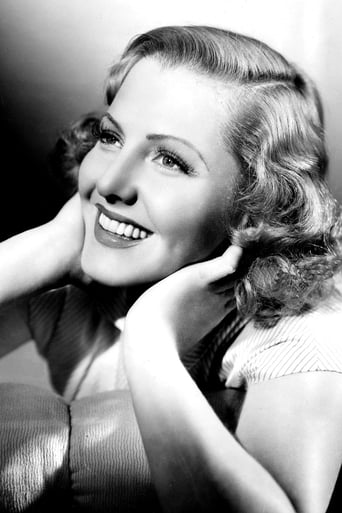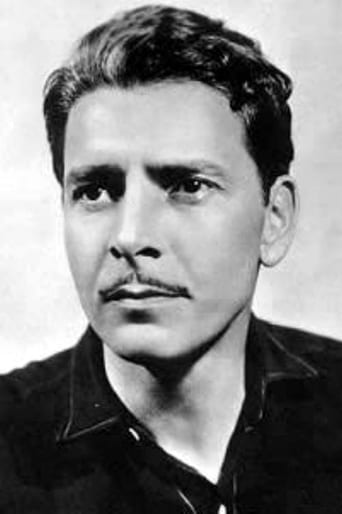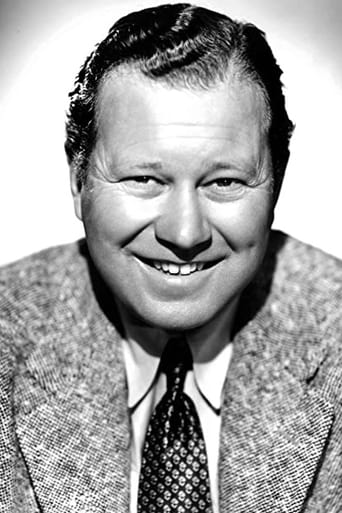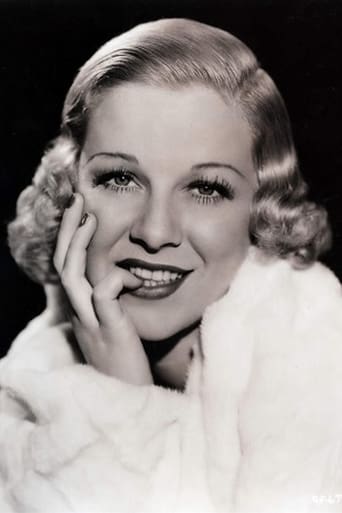ThiefHott
Too much of everything
Exoticalot
People are voting emotionally.
Catangro
After playing with our expectations, this turns out to be a very different sort of film.
Mathilde the Guild
Although I seem to have had higher expectations than I thought, the movie is super entertaining.
jacobs-greenwood
An essential comedy drama from producer-director George Stevens that features an outstanding cast: the powerhouse triumvirate of Cary Grant, Jean Arthur, and Ronald Colman in leading roles, and a solid supporting cast headlined by Edgar Buchanan.Nominated for Best Picture, it also received Oscar nominations for Sidney Harmon's original story, its Sidney Buchman-Irwin Shaw screenplay, its B&W Art Direction-Interior Decoration and Cinematography, Editing and Score. Dale Van Every is credited for writing the adaptation. Though an early work for Shaw, who wrote the play that became Out of the Fog (1941), Buchman brought significant (screwball, comedy) credentials to the project - Holiday (1938) with Grant, Mr. Smith Goes to Washington (1939) with Arthur, an Oscar win for Here Comes Mr. Jordan (1941); he'd also just worked with Grant on The Howards of Virginia (1940).Grant and Arthur had successfully collaborated with Howard Hawks on Only Angels Have Wings (1939). Arthur and Stevens would work again on a similarly subtle political comedy The More The Merrier (1943) and the actress's last picture, the quintessential Western Shane (1953). But this film represents the only time that the two suave Britishers would ever appear together on screen.Colman plays Judge Michael Lightcap, a law professor come Supreme Court nominee from Boston that's renting a house in Lochester for the summer (to write a book) from schoolteacher Miss Nora Shelley (Arthur), the prettiest girl in town per Leopold Dilg (Grant), a fugitive who's hiding out in Shelley's attic after being framed for arson. Because Lightcap is unaware of this harboring situation, and Dilg is unable to travel per an ankle sprained during his escape, Nora tells the judge that the fugitive is her gardener named Joseph. The two men become fast friends despite but because of their differing points of view on the law - stuffy Lightcap's is theoretical whereas practical Dilg's is more reality based - and mutual love of chess.Buchanan plays Sam Yates, a local lawyer that's also a former classmate of Lightcap's; he and Nora try to get Lightcap involved in Dilg's case even though the judge wants and needs to remain uninvolved per his pending nomination/confirmation to the Supreme Court bench. During the course of events, both Lightcap and Dilg become attracted to Miss Shelley.
gavin6942
An escaped prisoner (Cary Grant) and a stuffy law professor (Ronald Colman) vie for the hand of a spirited schoolteacher (Jean Arthur).That description of the plot is a bit misleading. While that certainly is true, and you will not know who she ends up with (if either of them) until the end, it is hardly the main story. This is the story of an innocent man being persecuted by a prejudiced town and of a law professor who only knows the ivory tower and not the real world.While this could be called a romantic comedy in the loosest sense of the term, it is much more than that and much deeper. It is a story of justice, of American rights, and a lively discussion of what the law is and how it should operate.Was there a deeper political message here? Could be. You make the call: a Red Scare theme? Pacifist sympathizers? Who knows?
Jenna
I was reminded of this movie when I saw Big and Carrie watching it in Sex and the City 2. I don't know if anyone would still be talking about this movie if Cary Grant wasn't in it. He was the reason I watched it when it was on Turner Classic Movies. I was excited to see that he was paired with Ronald Coleman, whose dry British manner I had enjoyed on the Jack Benny show. What's more, it starts out fun. Coleman plays an esteemed judge prospective boarder in Jean Arthur's home while she is trying to hide Grant, a Marxist fugitive, in her attic. Coleman's attempts to maintain civility as Arthur's odd behavior drives him insane are a delight to watch – think Bringing Up Baby. As soon as Coleman meets Grant, the fun romp grinds to a halt as the two engage in dull debates about the nature of justice. The film also becomes confusing as Coleman and Grant seem more in love with each other than either is with Jean Arthur, even as they compete for her affections. She was one other reason I had trouble enjoying this film, as I find her voice grating. Talk of the Town doesn't hold up. It's attempts at humor, romance, and social commentary fall flat. Too bad really – I've always like the two male leads.
zetes
An uneasy mixture of comedy and drama. Jean Arthur is mixed up in a love triangle with an escaped convict (Cary Grant, totally miscast) and a law professor about to be appointed to the Supreme Court (Ronald Colman, too British to be this character). Grant has been accused (and actually convicted) of burning down a factory and killing a man. He claims he's innocent, despite being a famous rabble-rouser. Arthur, who is working as a secretary for Coleman, hides Grant in her cabin and slowly tries to convince Colman to help with the injustice of the situation. It's a very awkwardly plotted film, and the attempts at comedy fall flat. I never really believed Grant as a rabble-rouser, and he just can't seem to handle the dramatic angle of the picture at all. Colman is pretty much the opposite. The film basically leaves him out of the comedy. Neither of the actors' romantic intentions come off as believable. Well, I guess they are believable in that anyone would want Jean Arthur, but it just doesn't fit in with the social issues angle. Pretty much nothing about it works besides Arthur. In my mind she can do no wrong. It isn't an especially bothersome picture to watch, really, even with all its problems, but it's far from good.






